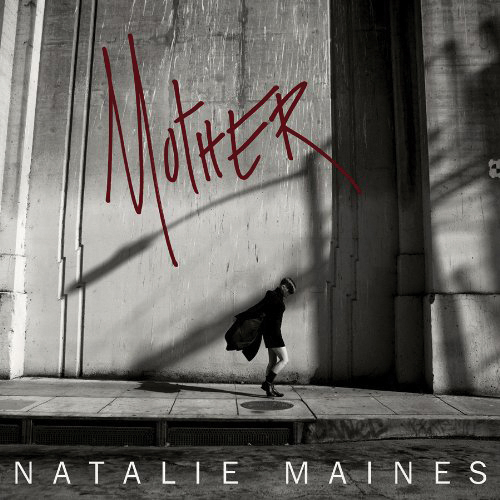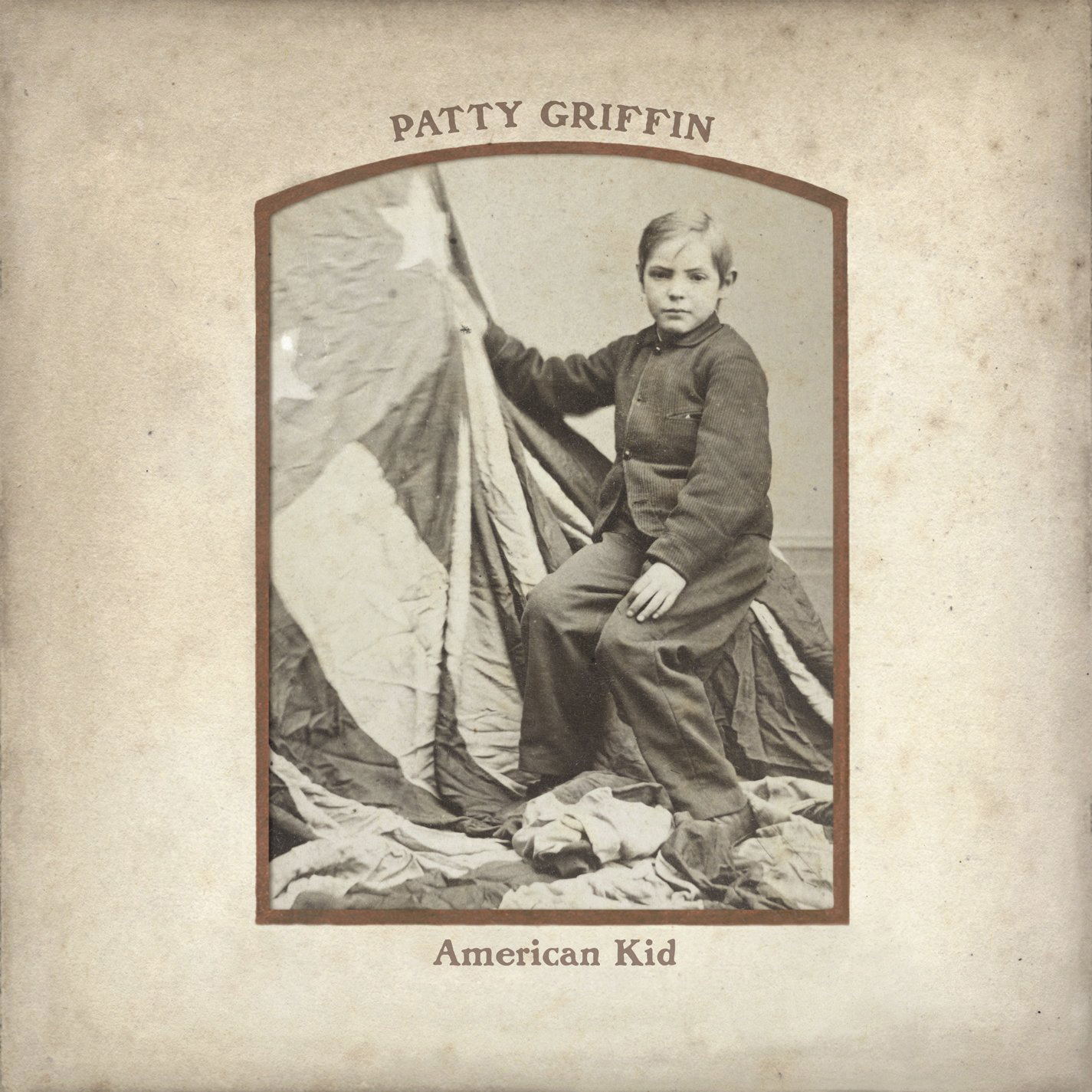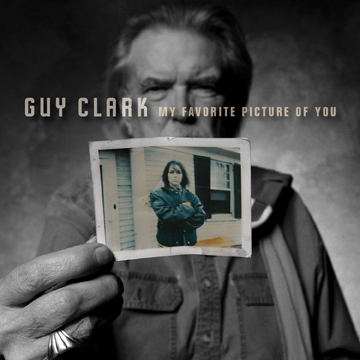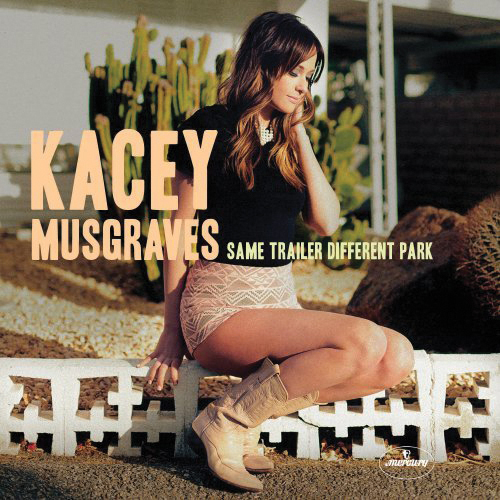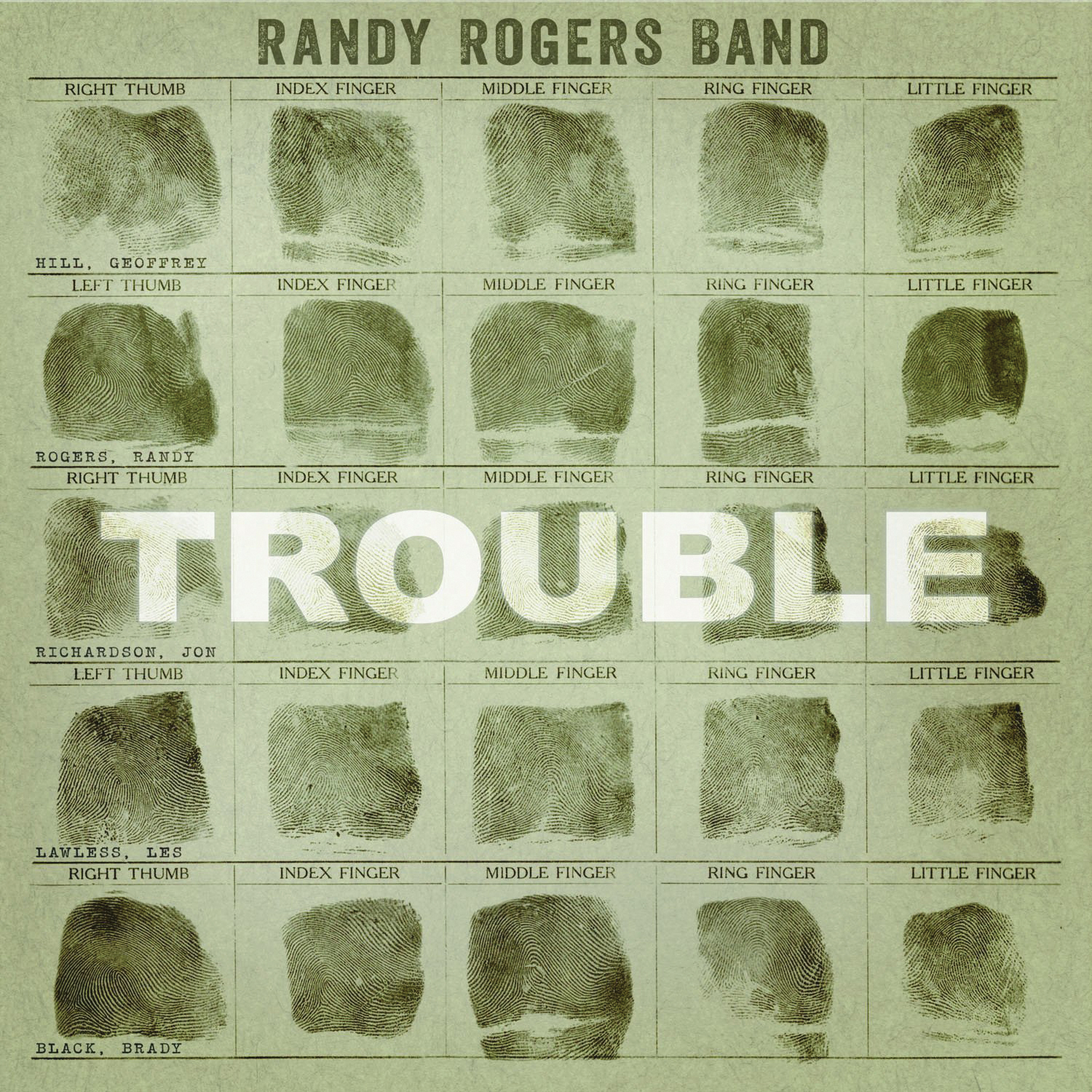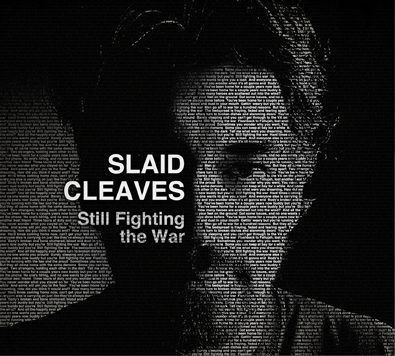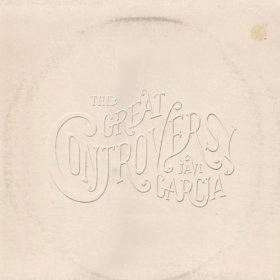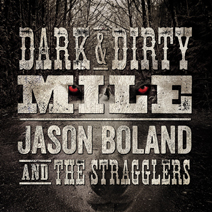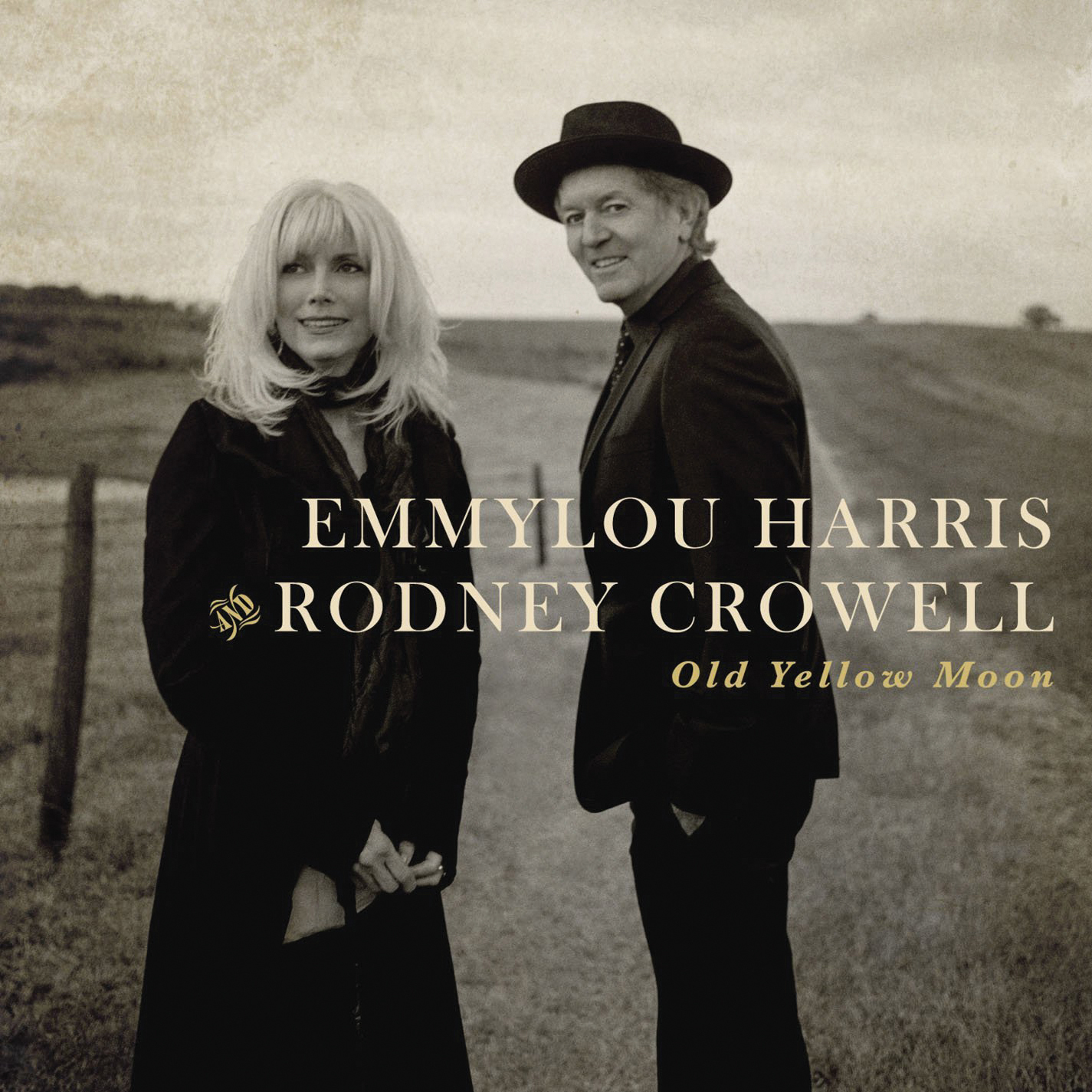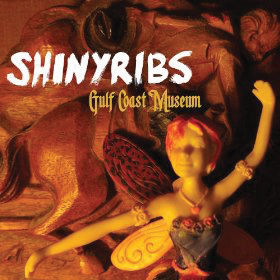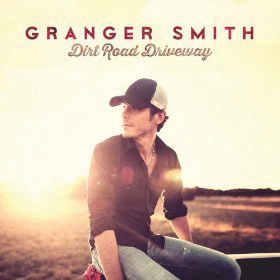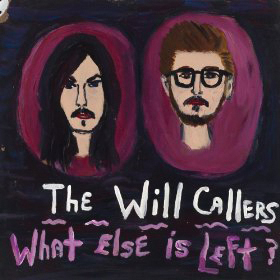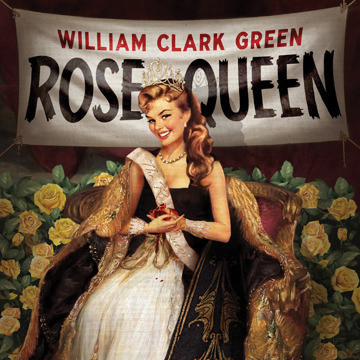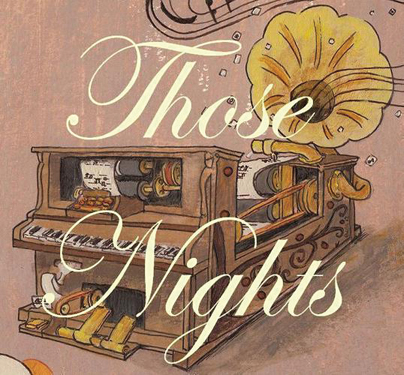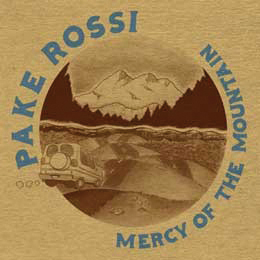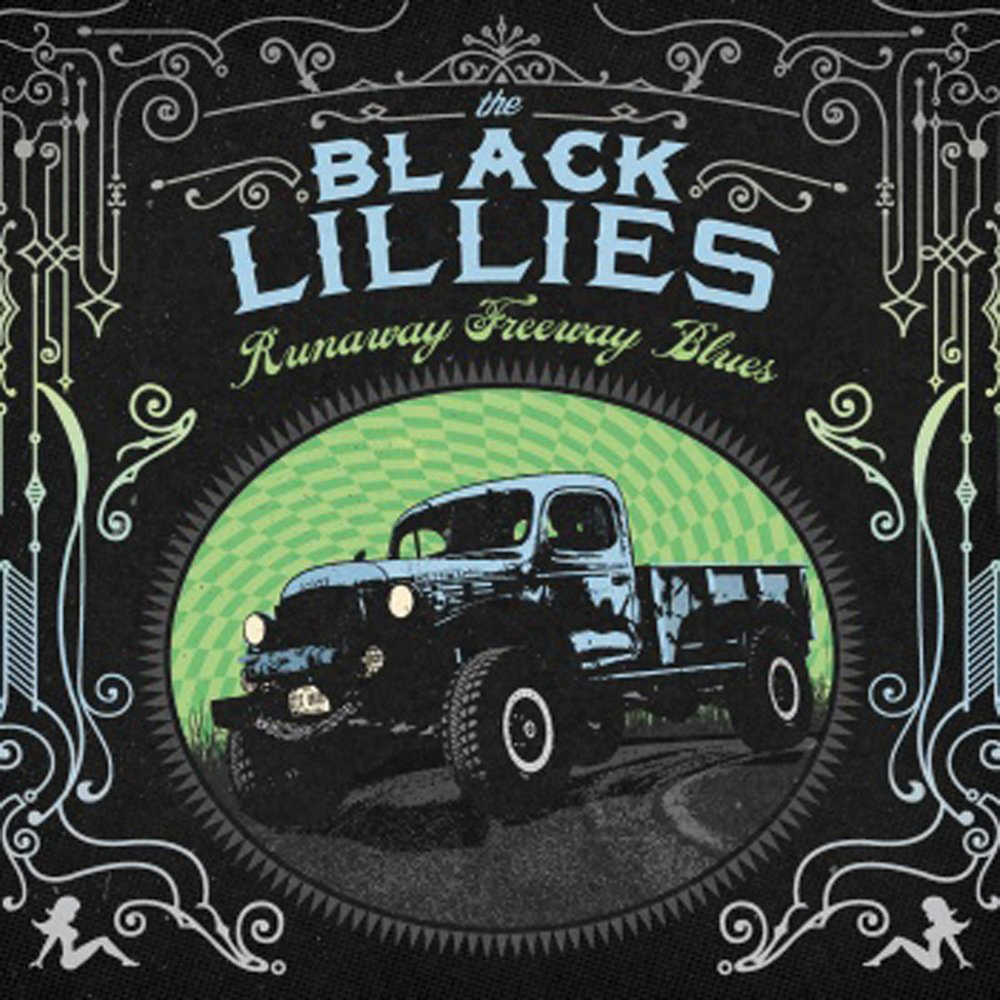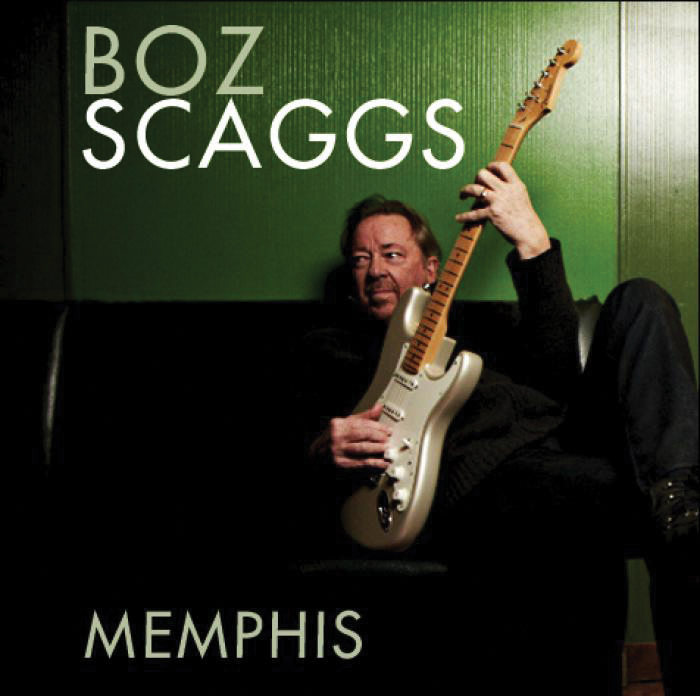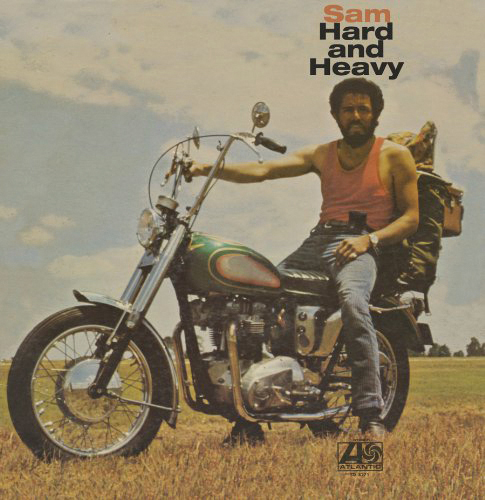 |
|---|

|
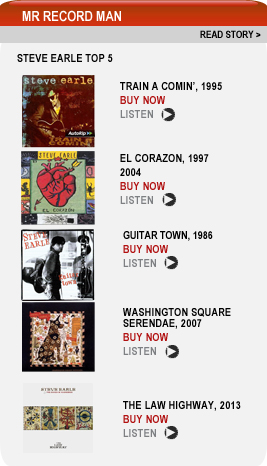
REVIEWS |
|---|
Ten years on from the Dixie Chicks’ bitter divorce from mainstream country music — and six years after the trio’s last album, Taking the Long Way, and it’s defiant kiss-off anthem, “Not Ready to Make Nice” — who would have ever thought Natalie Maines would take so long to make her solo debut? While the Chicks have regrouped a handful of times for special engagements and charity gigs and sisters Emily Robison and Martie Maguire have stayed active as the Court Yard Hounds, the group’s famously outspoken firebrand of a lead singer has, for the most part, kept relatively mum in favor or focusing on her private family life. Outside of Twitter and the occasional Howard Stern interview or benefit cameo, Maines has willfully avoided the public spotlight for nearly as long as she was at its center, singing on top of the world in one of the most successful country bands of all time.
|
|
Like most great songwriters, Patty Griffin is not known for happy tunes. But on American Kid, her New West Records debut, she breaks your heart with a single line. Then she skewers its shattered remnants with the next. Even if she were reciting her lyrics as poetry, they would devastate with their passion and precision. But when she adds her clear bell of a soprano, her words ring out as if they are tolling for every lost soul.
|
|
GUY CLARK |
On 2011’s This One’s for Him: A Tribute to Guy Clark, 29 of the legendary Texas songwriter’s best-loved classics were spotlighted through a colorful prism of Americana’s finest voices. But it was the one song that nobody had heard before, a brand new Clark gem sung by Jerry Jeff Walker, that proved the tribute’s piece de resistance. The unveiling of “My Favorite Picture of You,” a tribute itself to Clark’s wife, Susanna, came with no guarantee of more new Clark songs to come, but it was the perfect endnote for a celebration of a career spanning four decades. Susanna’s death less than a year after This One’s for Him was released only added to its poignancy. |
KACEY MUSGRAVES
|
Kacey Musgraves is the perfect mainstream country music conundrum. Same Trailer Different Park will be widely recognized as her debut, but she came to Nashville from Sulphur Springs, Texas, with three independent releases already under her belt, and the songs on her major-label bow reveal a mature artist who refuses to be beholden to either convention or the system. Willing to write about the awkward truth of real life — “It Is What It Is” is an unsentimental call to friendship with benefits — the nose-ringed songwriter leans into her craft with a little-girl innocence that isn’t afraid of what’s happening. “Merry Go Round,” her breakout single, tackles the escape routes people trapped in suburbia follow. For Mom, it’s Mary Kaye. For brother, it’s Mary Jane. For Dad, it’s Mary Down the Block. With the cautionary lyric, “If you don’t have a kid by 22 …,” it paints a picture of expectation and the inevitable succumbing of young people afraid to dream beyond the horizon line. That notion of escape is celebrated in the waitress on the lam in “Blowing Smoke,” a tale of the one server who got up the nerve to get the hell out. The others take their cigarette breaks, talk a lot of smack, then recognize all their big talk is just so much smoke. There’s the stomp ’n’ tambourine-framed “Stupid,” a smack down for falling for some guy. Sassy, and drawing on that chugging beat, Musgraves lulls the listener on the bridge, then a banjo rises up for a few plucked notes before returning to the full production. Even more pointed is the tart “Step Off,” the ultimate shutdown that’s as clever as it is infectious. |
RANDY ROGERS BAND
|
For the Randy Rogers Band’s eighth studio album, Trouble, the regionally iconic five-piece successfully spreads its wings just enough to keep long-time fans from listening on auto-pilot while still impressively managing to sound very true to proven form. Perhaps due to the presence of producer Jay Joyce (Eric Church, Cage the Elephant), the up-tempo tunes, such as “One More Sad Song” and “Don’t Deserve You,” are more revved-up and polished than some of the Rogers rockers of the past, but they never come across as blatant attempts to alter their musical identity. Plus, the stories contained in the non-heartbreak songs are possibly better than they’ve ever been for RRB. “Fuzzy,” the most entertaining tune on the album, is a gritty swamp-blaster with a storyline that, if not 100-percent based on true events on the road, still delivers as much fun as The Hangover. And if you’ve ever cared a lick about Texas country, the title track — featuring a memorable guest cameo by Willie Nelson — is damn near irresistible; Rogers and Nelson singing about shenanigans on the road with the rowdy musical fervor of a raucous rendition of “Whiskey River” is decadent black gold. And even the new songs here that trigger deja-vu do so in a way that fans are sure to love, sounding like they could’ve come from the same sessions that produced the RRB’s 2004 breakthrough record, Rollercoaster — especially “Goodbye Lonely,” which recalls “This Time Around,” and “Shotgun,” which just might be the sequel to “10 Miles Deep.” Peruse the credits, and it’s actually quite a shock to see that Rogers himself only had a hand in writing six of the album’s 11 cuts. But a good record’s a good record, and Trouble is the best album that the Randy Rogers Band has made in years. |
SLAID CLEAVES
|
Slaid Cleaves has made a fistful of very fine albums since his migration from Maine down to Texas in the ’90s, with every release from 1997’s No Angel Knows through 2009’s Everything You Love Will Be Taken Away packing at least two or three songs guaranteed to flat knock the wind out of you. But his 2000 breakthrough, Broke Down, has long gone unmatched as Cleaves’ end-to-end masterwork — until now, that is. It’s hard to pinpoint what it is exactly that distinguishes Still Fighting the War as a truly great Cleaves album rather than “just” another really good one, though, because it’s the whole package rather than any particular song or songs that really resonates. The immediately inviting, toasty warmth of Cleaves’ voice, of course, has always been a given. Sandy but smooth, comforting and at times beautifully uplifting but always grounded with a tinge of weathered and world-weary regret, it’s one of the most distinctive and emotionally effective instruments in all of Americana. But the melodies he sings with that voice are every bit as memorable. Cleaves is a rootsy singer-songwriter who’s made his bed in the folk world, but he’s as handy at writing irresistible hooks as any pop or rock artist this side of Tom Petty. There’s not a song on this album that you can’t hum along to halfway through on the first pass, and every one of them just sinks in deeper and deeper with subsequent listens with no diminishing returns. The best of the best ones here edge out the others only by a matter of degrees. The opening title track, an empathetic look at an ex-soldier battling post-traumatic stress disorder, soars with an urgency befitting its timely subject matter. “Without Her,” “Gone,” and “I Bet She Does” are all variations on the theme of love lost, spanning the emotional spectrum from shell-shocked sorrow to jaded distance. “Rust Belt Fields” and “Welding Burns,” co-written with Cleaves’ childhood friend Rod Picott (who recorded both on his 2011 album, Welding Burns), are striking portraits of blue-collar hardship and gritty resolve. (Truth be told, Picott’s take on “Welding Burns” is unbeatable, but Cleaves’ reading of “Rust Belt Fields” is devastatingly poignant.) And there’s light here, too: “Whim of Iron” and “God’s Own Yodeler” are feel-good celebrations of two indomitable human spirits (the latter being a suitably joyous tribute to the late Texas yodeler, Don Walser), and the irresistible “Texas Love Song” is a shameless (and knowingly so) exercise in Lone Star cliché waving. In the hands of any number of younger Texas yahoos, lines like “for you I’d trade my truck in for a Lexus” would be eye-rolling groaners; but Cleaves is in on his own joke and delivers it with such playful, aw-shucks whimsy, damn if it’s not hard to keep from grinning along with him like a fool. |
PISTOL ANNIES |
It would be easy to dismiss the Pistol Annies as the white-trash trio project for three-time Country Music Association Album of the Year winner Miranda Lambert. With strong harmony singing – courtesy of Ashley Monroe and Angelena Presley – the three girlfriends sling trailer-park clichés with some of the lushest stacked vocals since the Dixie Chicks called it a day. But where the Chicks, prior to Taking the Long Way, worked fairly wide-open emotional terrain, the Annies are more about the musical ground they can cover. From the slinky album opener “I Feel a Sin Coming On” to the acoustic campfire-lullaby “I Hope You’re the End of My Story,” Annie Up is a musical survey course that romps, bucks and coos. This is real music delivered with a naughty wink. |
JAVI GARCIA
|
When an artist knowingly makes music that isn’t for everyone, an honest listener can at least admire their commitment to the path. Javi Garcia gleefully, savagely takes it one step further and not only leads you down the road less traveled, he threatens to burn the bridge back to where you started. Audacity comes naturally and fairly unforced to Garcia, who turned a lot of heads with his 2010 debut (a double album called A Southern Horror, no less), which was bold and often gripping but in retrospect was only setting the table for his pretty damn brilliant follow-up. On The Great Controversy, Garcia stakes a territory somewhere between vintage Rolling Stones (including the subtle shades of country music), black-hearted Misfits shout-alongs, and Americana iconoclasts like his sometime running buddies Ray Wylie Hubbard and Mike McClure. To hear him take on a first-person narrative of Satan himself as a swaggering smart-ass is to have a good chuckle tinged with fear (“I’m the seven-year itch/A year after you’re hitched/I’m the thorns on the stick/When you got hit with a switch,” brags the title track); to hear him verbally smack down both a crank-addicted prostitute and her (his?) disapproving blue-collar dad on “The Sound” is both stirringly direct and hauntingly complex. Nailing it on boozy reveries (“Fort Worthless”) and dirty boogies (“Josephine”) without a bum track in the bunch, Garcia might be on the undercard of Texas music at the moment, but dammit … he’s swinging like a heavyweight.
|
JASON BOLAND
|
If there’s a more dependable country band ‘round these parts than Jason Boland and the Stragglers, then … well, there really isn’t. And true to form, the band’s new album, Dark and Dirty Mile, is reliably stellar. The title track isn’t quite as captivating as the title track to 2008’s seminal Comal County Blue, but it’s still packed full of the saw-dusted wisdom that Boland’s come to be known for. While statements are made in the form of “They Took It Away,” a tune about the white-man stealing land from the natives, among other historical shames, this is first and foremost a straight-up modern honky-tonk album. “Electric Bill” is the tune that will make the clingiest wall-flower jump into the middle of the floor, while “Lucky I Guess” and “See You When I See You” will compel couples to draw closer, even though the message of the latter is about parting ways. There’s little need, and zero effort here, to reinvent the jukebox. To know Boland’s music is to know the alarming, lonely light-switch flip of an empty bar at 1:55 a.m., as well as the anticipatory glow of a flickering candle in an intimate moment on a different kind of night. Boland’s country is drawn from the id of individuals who feel real things at the most vulnerable of times. |
EMMYLOU HARRIS & RODNEY CROWELL
|
When Rodney Crowell was a member of Emmylou Harris’ Hot Band in the ‘70s, his designation was “backup singer.” Not this time around. On Old Yellow Moon, they’re full-fledged collaborators, sounding like the best of old friends on a variety of tunes including four he wrote. Except for Albert Lee, just about every other Hot Band member or contributor shows up here, too, enriching tracks that range from uptempo classic country (“Hanging Up My Heart,” “Invitation to the Blues”) to the regret-tinged ballad, “Open Season on My Heart.” They stir it up a bit with “Black Caffeine,” going down low and dark, as if they’ve been hanging in True Blood country. It’s soundtrack-bound, for sure. “Bluebird Wine,” a Crowell composition from their first go-around, has a jaunty feel enhanced by his boost to co-lead vocalist. They also give Matraca Berg’s “Back When We Were Beautiful” an aching beauty. On that one and the title tune, their hurt-filled harmonies blend so well, it’s a wonder they’ve let so many years go by between recording sessions. Old Yellow Moon, produced by Brian Ahern (one of Harris’ ex-husbands) reinforces why she and Crowell became musical royalty — and why both remain on their respective thrones. — LYNNE MARGOLIS |
SHINYRIBS
|
Usually a side project is an opportunity for an artist to get a bit more indulgent and adventurous than his normal meal ticket allows. But for a guy like Kevin Russell in a band as freewheeling, versatile, and democratic as the Gourds, it’s less about going out on a limb than about exploring another branch with a killer rhythm section (Keith Langford and Jeff Brown) and an indispensable keyboardist (Winfield Cheek). If anything, his Shinyribs muse actually takes him to even more accessible places on occasion, such as the straightforward, John Prine-ish love lament “Somebody Else” or the downhome funk of “Texas Talking.” Still, the usual Gourds approach of wry, vivid non-sequiturs prevails in his writing, sometimes in a wildly joyous fashion (the big, earthy groove of “Bolshevik Sugarcane” finds him shouting out “Antique! Newlywed! Mozambique! Infrared!” for no other obvious reason than it sounds cool), and sometimes just to color up a narrative either internal (the introspective “Sweeter Than the Scars”) or external (the breezy jam “Take Me Lake Charles”). It’s a lyrical license made all the more palatable by the fact that Russell is more or less the best male vocalist alive (RIP Levon Helm), blessed with not only twangy range but a stirring emotional intelligence in his delivery. Witness “Song of Lime Juice & Despair,” where he spits impressionistic lyrics with sort of a forlorn urgency before breaking into an extended, wordless yodel alongside Ben Safer’s minor-key clarinet riffs. It’s abstract, kinda out-there, but never nonsense as it melts into the time-stopping closer: a cover of Harold Melvin & the Blue Notes’ Kenny Gamble and Leon Huff-penned R&B classic “If You Don’t Know Me By Now,” strummed on the ukulele and sung in close harmony with Brandy Zdan.
— MIKE ETHAN MESSICK |
AMANDA PEARCY
|
The Cliff’s Notes version of Amanda Pearcy’s hardscrabble life story, as told in the bio on her website, reads like the premise for a better-than-average Lifetime original movie — or, in the right hands, like say a 20-years-younger Sissy Spacek or Sally Field — a bona fide Oscar contender. But between the richly hued, smoky beauty of her voice and the striking, evocative images she paints in words and starkly haunting melodies, the Houston-born, Austin-based Pearcy hardly needs the Hollywood treatment (or budget) to translate her experiences into heartrendingly arresting art. Her sophomore album, Royal Street, recorded in Nashville with producer Tim Lorsch and funded through the finishing stages via a modest Kickstarter campaign, is a quiet storm of “a thousand tender recollections” that plays like a long, wistful sigh arching towards wisdom. In “Barking Dogs,” Pearcy sings of escaping the siren call of a lover’s memory by fleeing south of the border, “past nothing for miles but victims’ bones/where things are quiet and I won’t hear.” But as she concedes in another song, “Sad memories, like ivy vines/they don’t easily unbind.” Ultimately, succor comes from within, with songs like “Nickel in the Vase” and “Ordinary Lives” reflecting a hard-earned understanding that in lieu of perfect happy endings, resilience is its own reward. Albums like Royal Street are the proof. |
GRANGER SMITH
|
If there were a Most Likeable Artist category in the annual Lone Star Music Awards, Granger Smith would probably be a regular contender for the trophy. Smith’s humanitarian pursuits supporting the troops with the Boot Campaign and helping teens stay safe on the roads with his “Don’t Text and Drive” program are nothing short of admirable. And what’s not to love about his good-humored, genre-spoofing creation, Earl Dibbles Jr.? Smith’s backwoods, snuff-dipping alter ego became a viral sensation and is imminently funnier than the catalogs of Colt Ford and Cletus T. Judd combined. |
THE WILL CALLERS
|
The bar-hopping, roots-rock duo at the heart of the Will Callers are among the generation of artists young enough to owe an audible debt to the stripped-down progressive blues of the Black Keys, but they’re also among those wise enough to recruit no less an artist than Ray Wylie Hubbard as co-producer to help steer their full-length debut towards Texas music nirvana (with friends the caliber of George Reiff, Scrappy Jud Newcomb, and Brad Rice in tow). There’s an unmistakable tilt towards the smoky groove of the last few Hubbard albums at play here, unsurprisingly, but the youthfully urgent tone of the singers (as well as a few well-placed, chiming harmonies) and the influx of modern garage-rock influences suitably differentiates it from their mentor. The lyrics don’t always grab that fifth gear along with the music; despite some sweet hooks at the center of standouts like the playful title track and the rich metaphor of “House of Falling Cards,” things sometimes get a little paint-by-numbers between the choruses. That’s not a fatal flaw, though — just room to grow for a band that might well be unstoppable with a little more poetic license in between those grooves. |
WHEELER BROTHERS
|
Still a fairly fresh assemblage on only their second album (following 2011’s Portraits), the Wheeler Brothers find themselves born into a fairly welcoming world where their stock in trade — stout-hearted lead vocals, dreamy backing choruses, chunky acoustic-driven melodies, and an overall rural-hipster vibe — are well-represented high up on the sales charts by guys like the Lumineers and Mumford & Sons. The sonic overlap between the brothers Wheeler (lead singer Nolan and playful rhythm section Patrick and Tyler) and their nationally known forebears is, to be fair, more of a parallel than a derivation: those other guys are just getting started too, and to the Wheeler boys’ credit, they’re not stuck on the formula. “Cigarette Smoke” has a little blues and bluster in the mix to bite through the earnestness, sharing an echo-ey electric guitar dynamic reminiscent of My Morning Jacket with other standouts like “Weather” and “Yukon.” On the latter track, the whole crew chimes in with lines as guilelessly upbeat as “We’re all good kids with healthy minds/We just need guidance to get by ...” Perhaps the best advice is continue to play your ass off and be prepared to ride the wave, because Gold Boots Glitter is a good record and there’s rarely been a more fertile time for it to catch on. |
THE BEAUMONTS
|
Let’s get this right out of the way: The Beaumonts are not a for-everybody-kinda band. The easily offended — hell, even the reasonably offended — are best advised to steer clear, and purists who don’t like their country music mixed with turbo-charged attitude and splattered with XXX-rated humor probably won’t cotton to their unabashedly bawdy shtick, either. But if you ain’t scared off by any of that yet, strap in for one helluva fun ride. Picking up right where 2010’s Get Ready for the Beaumonts left off, Where Do You Want It? is a concentrated blast (eight songs in 23 minutes) of riotously funny, expletive-soaked honky-tonk served up with a big, shit-eating grin. And the kicker is, them’s real, serious chops at work behind all those gleefully raunchy, P.C.-baiting lyrics; if singer/guitarist Troy Wayne Delco, guitarist Hollywood “Steve” Vegas, steel player Chip Northcutt, bassist Don Ed Rosewood, and drummer Jimmy Ned Messer were ever so inclined, they could probably give any country or rock band in Texas a genuine beat down with all jokes tied behind their backs. But God bless ’em for answering a higher calling and sticking to the low road: If not for the Beaumonts, who else would come right out and declare, “Toby Keith is the ugliest woman that I swear I’ve ever seen”? |
WILLIAM CLARK GREEN
|
On the more radio-friendly end of modern Texas country music, there’s arguably not much payoff for taking radical risks; much like any other practical endeavor, from sports to accounting to architecture, it’s a game that’s played by certain rules and your bid for excellence is judged by what you can do within that space. But on only his third album, William Clark Green has filled that space with restless, poetic, and distinctive-feeling images and stories. It helps that there’s not too many notes his pliant, Ryan Adams-esque voice can’t hit, and his band can chug electrifyingly through modified Tex-Mex stomps (“Dead Or In Jail”), bluegrass-tinged love notes (“Let’s Go”), and standard-but-welcome Americana rockers (“Remedy,” “Drowning”) without ever sounding out of their depth. The title track’s arguably a minor stumble out of the gate, passionately delivered but saddled with a few clichés about fleeting high school romance; after that, though, it’s pretty much a wall-to-wall triumph, and in his own subtly smart way Green’s got something new to say about every familiar theme he tackles. Don’t let titles like “She Likes the Beatles” or “Welcome to the Family” throw you, either: the former’s a swirling, smart-assed celebration of an unconventional romance and the latter’s a tender, detailed rendering of a family beset by trouble but bound by love. No doubt he’ll do right by both the girl and the family, just like he’s done right by his own talents here. — MIKE ETHAN MESSICK |
THOSE NIGHTS
|
Originally a three-man project, San Marcos’ Those Nights have evolved into a five-man festival. During a live performance, you are so entertained by each member of the band that your eyes are battling to look at two different performers at the same time. The same holds true for the ears in Those Nights’ self-titled debut. Throughout the album, Lindsey James (who in the band’s live shows can be seen spouting spoken word raps and tapping the bass drum with a mandolin swinging from his chest) provides a layer of rhythmic texture to the already neatly stacked variety of sound that includes the moaning of background vocals and the swanky, sexy trombone of Pete Martin. Those Nights creeps into unsuspecting air with a short instrumental intro, “Golden Mean,” featuring a soaring cello, eerie but soothing. After that, the second track, “Drought,” seamlessly introduces the rest of the band — most notably the soulful vocals and dancing keys of Evan Styles. The entire album plays off of this indie/folk/something that just sounds great flowing from beginning to end. It plays like a movie, gently ushering you from song to song and lyrically speaking for anyone who has ever struggled to do what they love. — LAUREN MECKEL |
PAKE ROSSI
|
A friendly, frequently-booked young fixture in the Hill Country heart of Texas country folk, Pake Rossi didn’t break all the way through with his 2010’s For All That It’s Worth, a fine freshman record that got a bit lost in the shuffle. Changing his approach to take another run at it, Rossi’s sophomore effort, The Mercy of the Mountains, ditches the crisper, sunnier sound of his debut for a more earthy, sonically sepia sound courtesy of the co-production of fellow young guns Sons of Fathers (aka David Beck and Paul Cauthen). It’s still bubbling under with a similar youthful optimism seeping up through the cracks in his tales of regret and longing, but the muted thump of musicians reaching back to the elegant restraint of early-70s Bob Dylan and Townes Van Zandt records gives Rossi a suitable frame for his more complex sentiments. It’s not entirely misstep-free, with a recitation number that doesn’t quite hit home (“Broke In”) and a story song that tips off the rails a bit (“Don’t Blame Me”), but when he digs into an emotion he can get pretty deep and hang in there with touching vocal conviction (see the title track or the intricate centerpiece “The Chill” for two especially compelling examples). “I gotta try to stay as young as I can,” he drawls on the steady-rollin’, Gram Parsons-ish “AC Roar.” And you can’t help but wish him luck. — MIKE ETHAN MESSICK |
THE BLACK LILLIES
|
Knoxville, Tenn.’s the Black Lillies reached admirable heights with their 2011 album, 100 Miles of Wreckage, showcasing a nice flair for country-noir with an acoustic, rootsy spin, and the new Runaway Freeway Blues continues in much the same vein albeit with a little bit more rockin’ propulsion in the tank. “The Fall” opens the album with a gentle lope, with lead-singer Cruz Contreras and fellow vocalist Trisha Gene Brady harmonizing to sweet effect. Those same tight harmonies remain prevalent throughout, even on plugged-in rock tunes like the driving “Ruby” and “Ramblin’ Boy” (the latter of which also features some of the most emotively employed pedal steel guitar that the Americana world will likely be treated to all year.) Lyrically, the stories being told here aren’t necessarily groundbreaking, but they’re still worthy of following — especially “Catherine,” an all-too timely and relatable tale of a soldier simply looking back and looking forward to getting home. And like many of the songs on the album, that one’s imminently easy to sing along to, too. Far too often, bands are considered “edgy” when they reach for drastic extremes. The Black Lillies may not go that far out of their proven comfort zone, but they’re still progressive in the subtle way they broaden boundaries for the sake of making great songs. — KELLY DEARMORE |
BOZ SCAGGS
|
Plano native Boz Scaggs has had one of pop music’s longest and most varied careers. Beginning during the Summer of Love with fellow Texan Steve Miller, Scaggs moved from psychedelic blues to Van Morrison-influenced soul rock to late-70s disco-era superstardom via his near perfect Silk Degrees album. Once the hits dried up in the early-80s, he stepped off the pop music treadmill and opened his Slim’s nightclub, which remains one of the premier venues in the Bay Area. In the mid-90s Scaggs returned to music and performing, initially as a featured performer in Donald Fagen’s Rock and Soul Revue and eventually releasing a series of low-key but satisfying albums exploring his roots as a performer. Memphis is the latest installment, and it’s a pretty great one. Taking its title from the city where it was recorded, Memphis is, appropriately, all about the groove. Produced by Steve Jordan, who also mans the drum kit, the album is built around the core band of Scaggs, Jordan, the great Willie Weeks on bass, and the “Ghostbuster” himself, guitarist Ray Parker Jr. (who began his career as a session guitarist and has worked with Scaggs since the ’70s). Adding to the groove are legendary session players Spooner Oldham and Charles Hodges, best known for his work with Al Green. In fact, the specter of the Rev. Green looms large over Memphis, which was recorded in three days at Royal Studios, where the late Willie Mitchell produced Green’s ’70s masterworks. Hodges adds his unmistakable organ work to Scaggs’ take on Green’s “So Good to Be Here,” making it one of the standouts of the set. Others include two songs associated with the late Willy Deville, “Cadillac Walk” and “Mixed Up Shook Up Girl,” and a great version of Steely Dan’s “Pearl of the Quarter” that makes one want to hear a whole record of Scaggs covering the Dan. But until Scaggs gets around to that gem waiting to happen, Memphis hits the spot as exactly the kind of “throwback” album more established artists of his kind should aspire to: low key, grooving, and playing to the strengths of the artist, with nary a care about the commercial fate awaiting it. — GREG ELLIS |
SAM SAMUDIO
|
File this one under “Lone Star Nuggets.” In his ’60s days fronting Sam the Sham and the Pharaohs, Dallas-by-way-of-Memphis wildman Domingo “Sam” Samudio specialized in absurdist garage-rock that carried both a pointed outsider edge and a gritty musical sensibility that underlined his blues, R&B and country roots. Those roots are prominent on this newly reissued 1971 solo effort, which finds Samudio convincingly reinventing himself as an edgy contemporary bluesman, striking a tougher, edgier tone while maintaining the quirky iconoclasm of his prior work. With savvy studio vets Tom Dowd and Jerry Wexler producing, and soulful support from the Jim Dickinson-led Dixie Flyers, guest guitarist Duane Allman, the Memphis Horns and the Sweet Inspirations, Sam, Hard and Heavy sustains a loose, vibey atmosphere that’s well-suited to the raw immediacy of Samudio’s sly vocal drawl. His performances here feel organic and personal, even when he’s tackling such familiar numbers as Big Bill Broonzy’s “Key to the Highway,” Randy Newman’s “Let’s Burn Down the Cornfield,” the Doc Pomus/Ray Charles chestnut “Lonely Avenue,” and a horn-propelled take on Otis Rush’s “Homework.” The real revelations, though, are such offhandedly inspired Samudio originals as “Relativity,” “15% ASC,” “Don’t Put Me On,” and the psychedelicized shouter, “Starchild.” The album’s original 10 tracks are augmented on this release by a countrified reading of Kris Kristofferson’s “Me and Bobby McGee,” recorded during the album sessions. Although it made little impression on a world that probably would have preferred another “Wooly Bully,” Hard and Heavy is a one-of-a-kind winner that lends perspective to its creator’s better-known work, while leading the listener to wonder what other treasures this pioneer of Texas rock ’n’ roll might have produced if given more chances to record during this period. — SCOTT SCHINDER |
|
|
